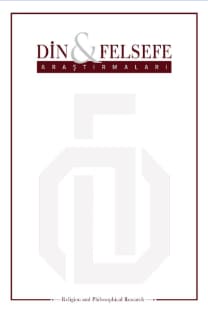Rus Yazın Kültüründe Semiyotik - Sergey MALENKO, Andey NEKITA
Bu yazının esasını, yazın kültürünün semiyotik ve sembolik bağlamlarının arketipik diyalektiğinin çözümlemesi oluşturmaktadır. Buna göre, kitabi yazı, Rus tarihinin farklı evrelerine bağlı olarak farklı sosyo-kültürel bağlamlarda tezahür eden Öz arketipinin temsil aracı olarak görülebilir. Rus dinî merkezlerinde kitapların ortaya çıkışı ve yayılışı, Kutsiyeti çoğaltmanın bir yöntemi olarak bir tür özel kitap okuma kültürünün oluşmasına yol açmıştır. İlerleyen dönemlerde kitap, toplum nezdindeki kutsal rolünü tüketerek sadece dönemle ilgili ve esasında lâdinî malumatların korunması ve aktarılmasının bir aracı olarak görülmeye başlanmıştır ve bu da bir bütün olarak kültür ve eğitim buhranıyla sonuçlanmıştır
Sacral Semiotics in Russian Literature Tradition
The article is devoted to the analysis of archetypal dialectic semiotic and symbolic contexts of book culture. The image of a book-code is a way of presentation of the archetype of the Self, which, depending on the specific period in Russian history is implemented in different cultural contexts. The creation and distribution of books in the centers of Russian monasticism forms a special tradition of honoring literacy as a way of increasing Holiness. In the future, the book loses its sacred role in society and is seen as a way of storing and transferring actual, but profane information. This leads to the intensification of the crisis of education and culture in general.
- Yayın Aralığı: Yılda 2 Sayı
- Başlangıç: 2018
- Yayıncı: Din Felsefesi Derneği
Sayıdaki Diğer Makaleler
ALASDAIR MACINTYRE’IN MODERN AHLAK ELEŞTİRİSİ VE THOMASÇI-ARİSTOTELESÇİ AHLAK FELSEFESİ
TOPALOĞLU, FATİH. 2018. DİN FELSEFESİ AÇISINDAN KUTSAL ANLATI. ANKARA: ELİS YAYINLARI
Elis YAYINLARI, Muammer İSKENDEROĞLU
Jean Baudrillard'ın Simülasyon Kuramında Ayartma Kavramı
Hümeyra OKUYAN, Caner TASLAMAN
TÜFENKCİ, SEMRA. 2017. DİN FELSEFESİ AÇISINDAN İNSAN DOĞASI. ANKARA: ARAŞTIRMA YAYINLARI
POSSIBILITY OF EQUATION BETWEEN REASON AND REVELATION: WAS IBN SĪNĀ A DEIST?
TÜFENKCİ, SEMRA. 2017. DİN FELSEFESİ AÇISINDAN İNSAN DOĞASI. ANKARA: ARAŞTIRMA YAYINLARI
